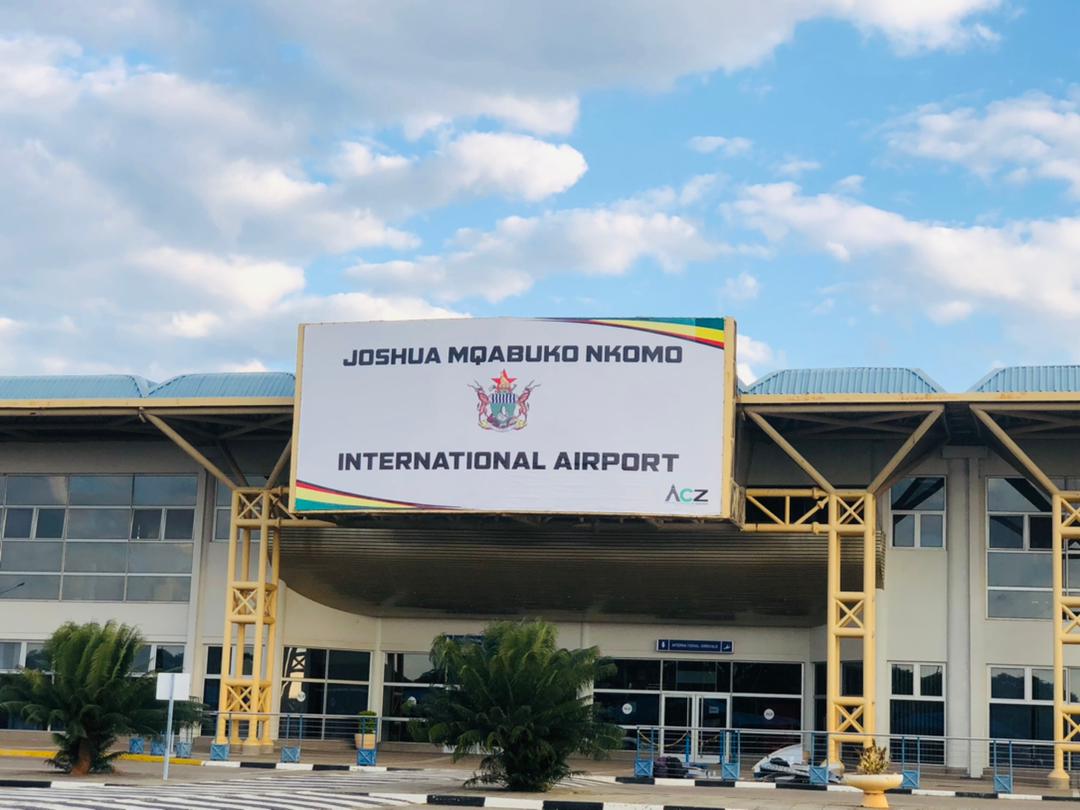Some academics have argued that the outrage over the change of signage at the Joshua Mqabuko Nkomo (JMN) International airport exposed the short-sightedness and emptiness of Matabeleland politics.
These scholars said a debate on what can be done to solve the marginalisation of Matabeleland and revive its politics was needed more than making noise over symbols.
Speaking at a CITE Twitter Space, This Morning on Asakhe, Critical Studies scholar, Khanyile Mlotshwa, emphasised that people needed to have a bigger debate on the state of politics in Matabeleland and the effects of marginalisation on communities.
“What is surprising is this is even an issue. It shows how mediocre or how low our politics is pitched in Matabeleland,” he said.
Mlotshwa raised three points to support his argument.
“The first is the JMN airport is a national asset and the Zanu PF government has done what any normal government will do, which is assert itself on a national key point in which it has invested a lot,” he said.
“Secondly, to seek to mourn or assert Matabeleland nationalism through some symbol at an infrastructure owned by the government shows the emptiness of Matabeleland politics. People who are complaining are pseudo revolutionaries who dream of asserting Matabeleland’s sovereignty outside a federal system or outside secessionism.”
“It is like a person who is sick and knows the sickness is daily eating them up but want to make noise any symptom shows up because it would seem, people of Matabeleland, every time wait for minor things, it can be a wrongly spelt name or Ndebele word on some building owned by someone who is not a Matabeleland person or wait for the size of a statue that is erected with Bulawayo to then complain.”
The focus for Matabeleland, Mlotshwa noted, was that the politics of Zimbabwe were structured in a way that Matabeleland is systematically marginalised.
“What we should be dealing with is that systematic infrastructure or that systematic construction of Zimbabwean politics that is what we should be looking at. Otherwise, we will spend our lifetime complaining about minor things like symbols, names and so on,” said the academic.
“This is how Zimbabwean politics is structured so that we invest our energies or political imagination to deal with these symptoms rather than the real craft of the matter”
Mlotshwa’s third point was that such kind of complaining was empty and claimed that even the late vice president, Joshua Nkomo would be surprised about where it came from.
“This is because Nkomo is the ultimate and even only Zimbabwean nationalist, only person who has been clear about his Zimbabwean nationalism while other people like (the late former president Robert) Mugabe and his followers who are currently in charge of Zimbabwe’s national state of affairs have fuelled tribal politics yet Nkomo was clear he was a Zimbabwean and will be happy to see this government symbol there at an airport named after him,” he argued.
Another scholar, writing on his Facebook page, Brilliant Mhlanga concurred that the problem with the people from Matabeleland is how short-sighted most of them are.
“A lot of them (this includes, even some of their so-called educated and their leaders), they parrot being Zimbabwean. Others even continue to see themselves as citizens, including labelling Zimbabwe as a nation and seeking to engage the Gukurahundi Genocide discourse as an ‘immanent critique’ of the Zimbabwean National Project. Yet the system openly rejects them, causing a number of them to find sanctuary in other people’s lands,” he wrote.
“But they will still continue to celebrate their being Zimbabwean, simply because they hold that ‘Green Bomber’ Passport, so they say. Imagine that kind of feeble-mindedness.”
Mhlanga noted that whenever Zanu PF rejects them, as it has just done by desecrating the shield, a symbol of heritage at the JMN airport, they complained.
“They cry to the Holy Heavens and attempt to narrate the story of their exclusion to Peter, John and all of the Saints and the departed souls that are in heaven. But still, they don’t learn. Mourning to the Heavens for the destruction of the Shield and Spear that the same Zanu PF had actually placed there is itself a failure to understand the depth and true meaning of Zanu PF’s desecration of Gukurahundi Memorial Plaques,” he stated.
Mhlanga noted that people who can desecrate graves and epitaphs cannot be trusted with anything, describing this as more ‘terrible’ than just removing a shield, spear and the knobkerrie from the airport.
“Imagine this, people who can desecrate graves of people that they brutally massacred and their epitaphs, are capable of doing worse things than that. I think there is a need for a much deeper conversation on these issues. After that, there will be a need for ‘praxis.’ Always remember the three stages – theoria, poesis, and praxis,” said the academic.

